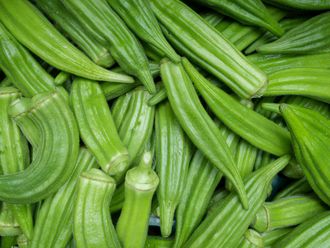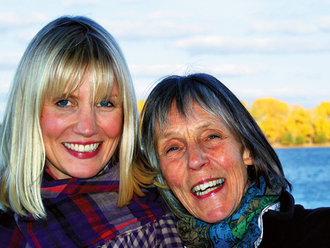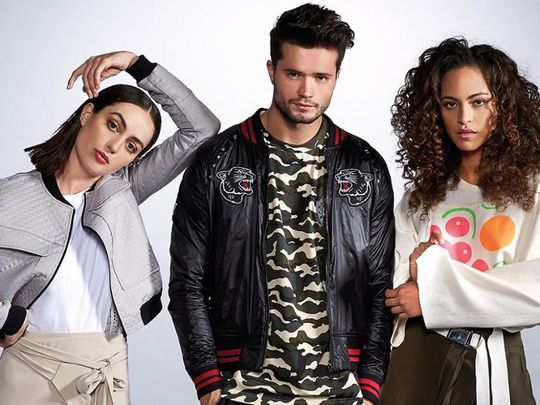
Kristina Fidelskaya
‘I was interested in fashion since I was a child. Watching my mother creating beautiful clothes for me and my sister, I started making my own pieces as a teen,’ says the Ukraine-born designer, who studied design at Dubai’s French Fashion Institute Esmod, and in 2014 started a womenswear label based here. ‘I felt there was a gap in the market for a local brand to offer a European, elegant and timeless design outlook. My vision is to set a trend for women worldwide to keep their femininity in the modern life.’
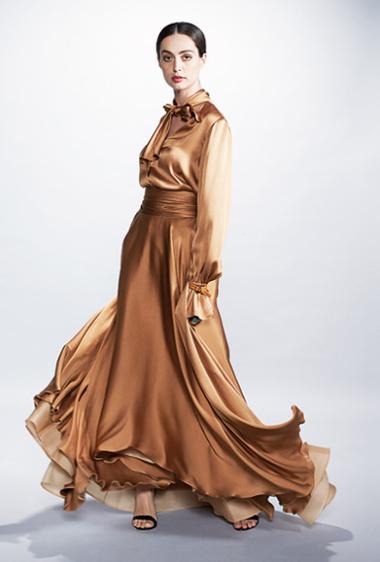
Deborah Henning
‘My brand is a minimal, contemporary label,’ says Deborah, whose label was selected earlier this year to showcase at London Fashion Week’s emerging designers show Fashion Scout. ‘I moved here seven years ago. When Dubai came on the radar it just felt right, like a good time to seize the opportunity. Since then I’ve sculpted my brand to fit that mind-set. The population here is open minded, and loves to travel and explore. So I created a clean, minimal line that works with that ethos – easy to wear while crafting what you want from your life.’
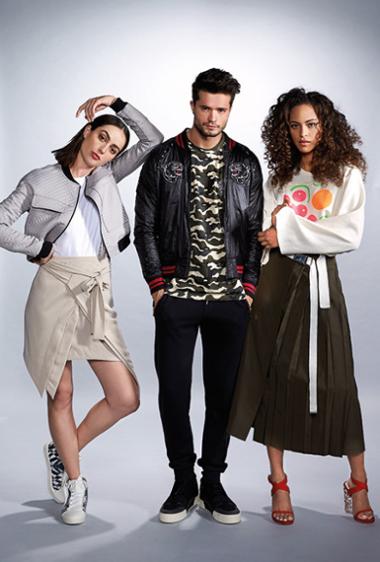
Bedouin
After seeing all sides of the fashion industry – studying at Central Saint Martins, working with Matthew Williamson, Marchesa and Edun, and managing production in Bengaluru – British designer Andraya Farrag returned to Dubai where she had lived as a teenager. Her focus: Ethical fashion. ‘Giving back and supporting local businesses and infrastructure is incredibly important to the Bedouin philosophy. Therefore each collection is hand-crafted locally. Quality is extremely important to us, therefore I focus on sourcing luxury Italian fabrics, attention to detail and high-end finish while maintaining a contemporary price point. By working with local artisans, I am happy and proud that I can contribute towards supporting a successful yet small family business hailing from Pakistan, who have lived in Dubai for more than 30 years. In addition to that, I try to be extremely waste conscious and ensure that all the off-cuts are incorporated into the designs.’
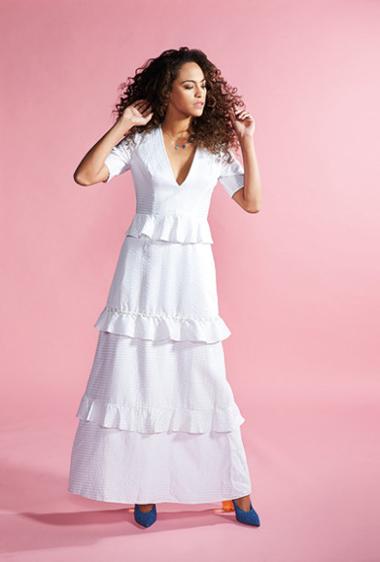
Bambah
Maha Abdul Rasheed started Bambah Boutique over seven years ago, positioning it as the first vintage boutique in the UAE. ‘Although at that time the concept of “vintage” was fairly new to the region, the enthusiastic response that I received inspired my interest in designing and pushed me towards establishing my own ready to wear line.
‘After travelling the world searching for the best vintage finds and introducing myself to the world of fashion design, I took the initiative and launch my own “vintage inspired” ready to wear collection. I created feminine clothing with soft rounded shapes and full flowing skirts to bring back the elegance of previous eras. I wanted to introduce a modern twist and provide an affordable evening wear line with an emphasis on excellent craftsmanship, elegant prints, and unique and luxurious embroideries.’
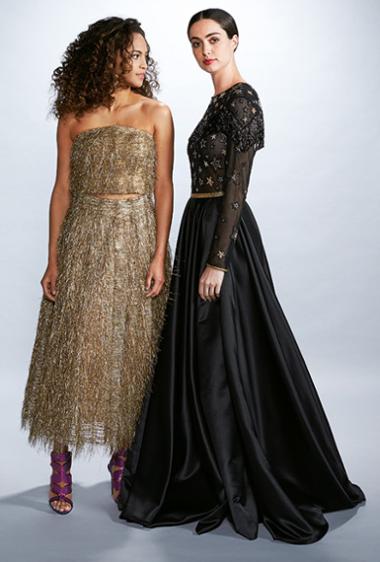
Varoin Marwah
Indian designer Varoin launched his menswear brand in 2012, and this year represented UAE in the International Woolmark Prize. ‘Personally it has been the best decision for me to have my brand in UAE, as I have had the pleasure to be a part of the city’s growth and offer my futuristic designs,’ he says. ‘I don’t think fashion has any boundaries in the UAE. It’s far more fluid. The support from the Dubai Design and Fashion Council is tremendous. One has to be on top of the game in every field in a competitive society and I believe that holds true for UAE as well – whoever goes slow here has no room for growth! One has to keep evolving and growing to keep themselves ahead of the game.’
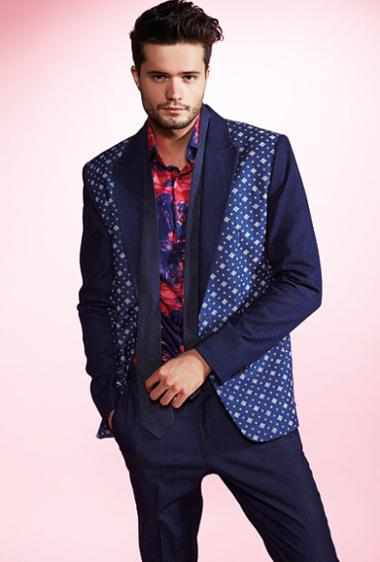
Canella Hostal
We have Canella’s ambitions to thank for the UAE branch of Esmod, the French fashion school. It opened here because Canella wanted to study fashion in the UAE, and her mother, Tamara, made it happen. ‘When I was 12, I took some pattern-making classes in a costume design atelier where I learnt how to make corsets and stage costumes,’ she says. Now, the French expat has her own label.
‘Dubai is a great place to start a fashion business; you have lots of opportunities. You don’t need millions to start your label. Starting small is always the best to test your market and see the response of your future clients. Take time to enjoy every step; this makes it fun.’
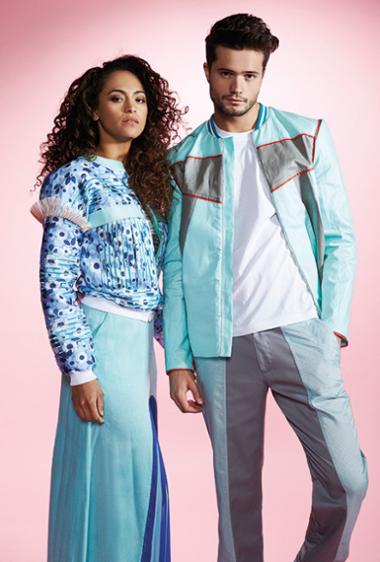
Madiyah Al Sharqi
The daughter of the Ruler of Fujairah wouldn’t have started her brand (launched in 2012 after graduating from Esmod) anywhere else. ‘I have my own atelier and have been working with them for 13 seasons now in Fujairah. It is very important for me to have “Made in the UAE” on my garments – we source all our fabric and embroidery from Italy and France, but it has always been fundamental that the pieces are produced here,’ she says. ‘In more recent collections, I have been progressing with more ready-to-wear pieces, incorporating more wardrobe staples in approachable fabrics and an accessible price-point – found in my latest Resort 2018 collection.’
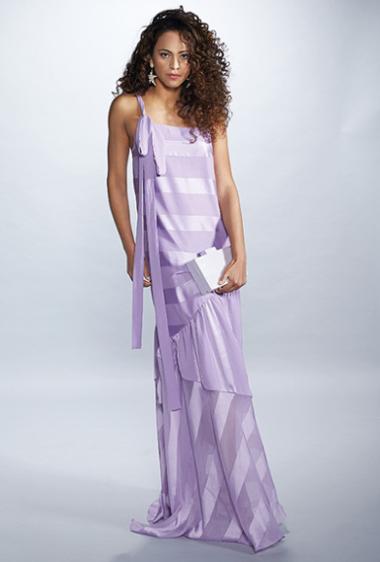
Twisted Roots
‘I saw a gap in the market that I wanted to fill, not only for myself but for conservative modern women looking for contemporary, stylish functional pieces,’ says founder Latifa Al Gurg. ‘Being Emirati, it was only natural to be based in the UAE. It’s wonderful being part of such a vast group of talents.’ The name Twisted Roots was derived from her mixed heritage. ‘It celebrates the human journey in life through which, no matter how far we travel, we always remain tied to our origins.’
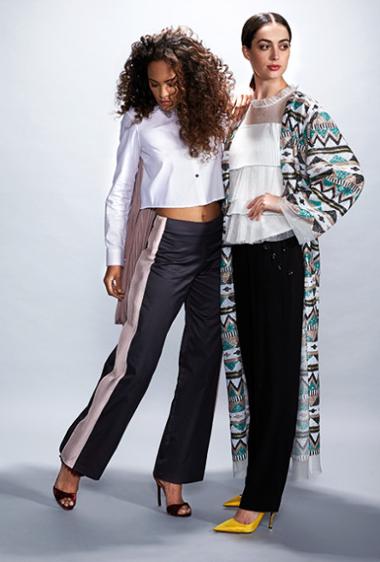
Nuna Atelier
Noora Al Alawi always found ways to be expressive with her fashion, but as she grew older, looked for a way to intersect her marketing major with her passion for style. ‘Luckily, I had an investor who believed in me and my vision,’ she says. ‘That is how Nuna Atelier was born. The core product of the brand is the “throw-on”, a coat-like garment that [goes beyond] the Emirati dress. The relationship between Nuna and Dubai is the same as that of Chanel and Paris. I’m born and bred in Dubai. It was only the natural thing to base the brand here. It feels more organic to its identity.’
Endemage
Lubna and Nadia Al Zakwani set out to create a luxury brand that merged Omani and Arab culture with modern silhouettes, and after studying in the UAE, decided Dubai was the place to start up. If it was not for the opportunities available in the UAE, ‘I wouldn’t know where to start,’ says Lubna. ‘We were chosen by Vogue Italia to be part of the Vogue Dubai Fashion Experience [an event at The Dubai Mall], which gave us international exposure and put us on the Vogue radar.’
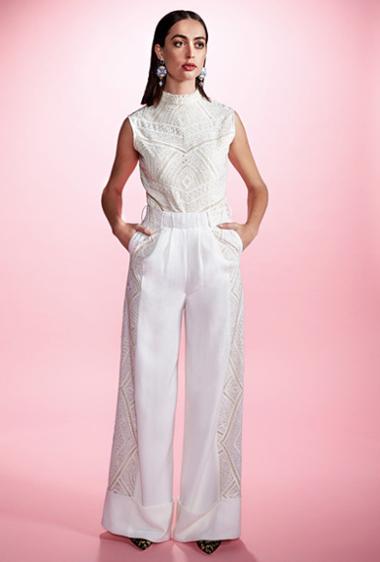
Jelena Bin Drai
‘My brand is organically grown, as it started from home. I’d employed a tailor and embroiderer, as I didn’t have time to go shopping. I started designing dresses for myself, which my friends liked and a few of them placed orders. When friends of my friends started calling to order gowns, I was convinced I should start my own brand.’
The Serbian-born mum of three is also a great supporter of other local labels, noting that visibility in their own market is the biggest challenge for UAE-based designers. ‘Personally, I’m bored of the same [overseas] brands that are available in all malls. I wear only my own brands and those from local designers such as Huda Al Nuaimi, Rami Al Ali, Essa and Ayesha Depala.’
Asya Krasnaya
This UAE fashion brand was founded by Russian sisters Elena Baiandina and Evgeniya Eid; Asya Krasnaya is a make-believe girl who has become the muse and name of their brand. ‘We are inspired by those childhood days, dreaming to have comfortable, chic and colorful wardrobe. Now we are living our dream’ says founder Elena.
Donna Hourani
‘Every design stems from a concept to give it a more sentimental meaning to the wearer,’ says the Dubai-raised jewellery designer. ‘It’s unique and far from commercial – my jewellery mimics art pieces and sculptures that portray their own story, exquisite materials, uniqueness and aesthetic. Versatility is very important to me so my pieces can be worn both day and night, to dress up or down a whole look.’
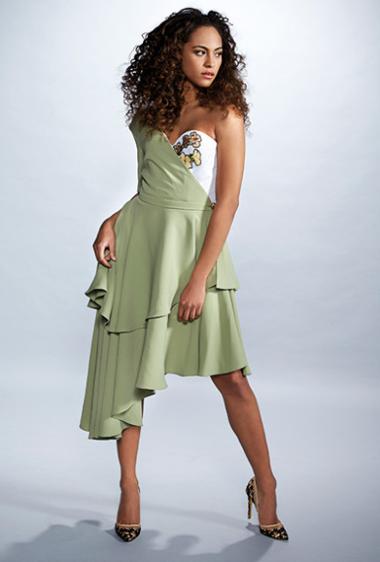
Where are all the shoe designers?
The aim of this shoot was to use only fashion labels based in the UAE – and if possible, manufactured in the UAE, too. That’s easier than ever when it comes to clothes, but shoes are a different story – few designers are creating fashion-forward footwear locally.
One exception is The Nou Project, founded by Saudi duo Nour Al Tamimi and Basma Chidiac and based in Dubai.
We also feature shoes by Emirati shoemaker Sultan Al Darmaki – although he is based in London. With so many new labels starting up their businesses in the UAE, we hope next year’s UAE fashion shoot will feature many more home-made footwear options.
Hair and make-up: Katharina Brennan at MMG Artists. Models: Yolandi at Wilhelmina; Nemanja and Mari at MMG Models.


